
The email alerts service allows anyone who registers their email address to be notified via email when new content goes online.
Recommend this journal to your friend or library.
Manuscripts should be submitted online through our website or as an email attachment to the editorial office at editor.jcrt@nobleresearch.org
- Latest Articles
- Most Viewed
Latest Articles

Voluntary organizations supporting patients with cancer: A qualitative exploratory study into the
01 Jun 2022
The prime objective of cancer voluntary organizations is to decrease the impact of cancer on the personal life of patients and ... More
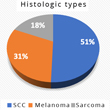
Vulva and lower limb cancer: Results of inguinal lymph node staging on 81 cases
02 Sep 2021
Chronic complications, including lymphedema are underestimated and require better assessment methods for prevention and treatme... More
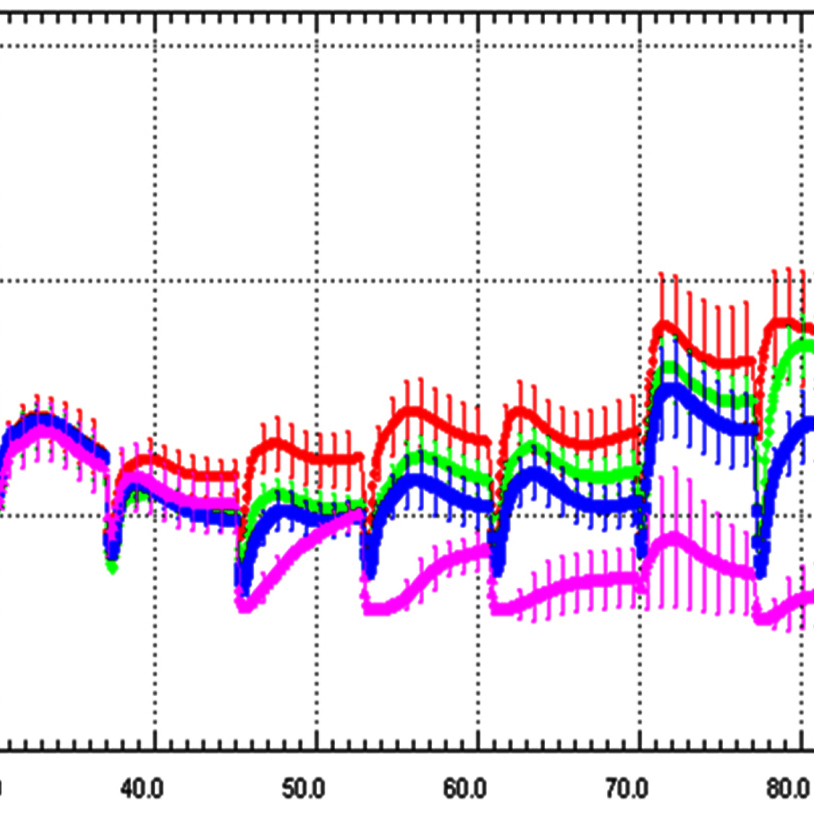
Deuterium depletion inhibits lung cancer cell growth and migration in vitro and results
02 Aug 2021
Results support earlier data that integration of D-depletion to conventional therapies increases the efficacy of therapy, reduc... More
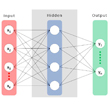
Advances in artificial neural networks as a disease prediction tool
02 Jun 2021
This review emphasizes the extensive potential of machine learning in medicine and the obstacles that must be overcome to utili... More
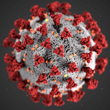
Unique challenges and the changing face of oncology during the COVID-19 pandemic and beyond
03 Nov 2020
The unique challenges cancer specialists and those living with cancer face amidst the COVID-19 pandemic, as well as the implicatio... More
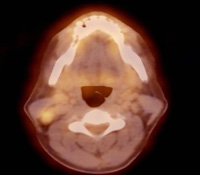
18F-FDG PET/CT for first follow-up post chemotherapy in lymphoma: Is it mandatory to do whole body scan?
01 Apr 2015
Objective: To assess the feas... More

The positive sentinel lymph node biopsy- can we predict which patients will benefit from further surgery?
01 Feb 2015
Introduction: Although sentin... More
Most Viewed

18F-FDG PET/CT for first follow-up post chemotherapy in lymphoma: Is it mandatory to do whole body scan?
01 Apr 2015
Objective: To assess the feas... More

The positive sentinel lymph node biopsy- can we predict which patients will benefit from further surgery?
01 Feb 2015
Introduction: Although sentin... More

Factors associated with first-line bevacizumab use in advanced non-squamous non-small cell lung cancer
01 Jan 2014
Introduction: Bevacizumab w... More

Multi-institutional analysis of bioimpedance spectroscopy in the early detection of breast cancer related lymphedema
01 Mar 2013
Background: The purpose of th... More

Current trends and controversies in the management of patients with splenic flexure tumours
01 Mar 2013
Aim: There exists a variatio... More

Sonic hedgehog inhibition reduces in vitro tumorigenesis and alters expression of Gli1-target genes in a desmoplastic medulloblastoma cell line
01 Mar 2013
Medulloblastoma is one of the most f... More

Outcomes of social support programs in brain cancer survivors in an Australian community cohort: a prospective study
01 Mar 2013
This study evaluated the impact of s... More

Economic evaluation of monoclonal antibody in the management of colorectal cancer
01 Mar 2013
Objective: This study aims t... More

High grade endometrial cancer: A prospective cohort study of the outcome of 120 patients after primary surgery
01 Mar 2013
Objective: The purpose of thi... More

Diagnostic accuracy of (18)F-FDG PET/CT for the detection of peritoneal carcinomatosis of colorectal origins
01 Mar 2013
Purpose: to evaluate the dia... More
Aims And Scope
Journal of Cancer Research & Therapy (JCRT) is an international refereed journal, which publishes high-quality original articles reporting new information on basic and clinical aspects of cancer research and therapy. The wide range of topics includes cancer etiology and epidemiology, cancer prevention, mechanisms, molecular biology, recent developments in tumor therapy, radiation oncology, oncogenes, apoptosis, angiogenesis, metastasis, cancer image and interventional diagnosis and therapy, tumor markers, surgical oncology, chemotherapy, radiotherapy and biotherapy. The journal encourages submission of manuscripts with relevance to (but not limited to) cancer genetics, cancer pathology, cancer cytology, cancer endocrinology, clinical aspects of breast cancer, Lung cancer, genitourinary cancer, gynecologic cancer, ovarian cancer, prostate cancer, bone cancer, colorectal cancer.
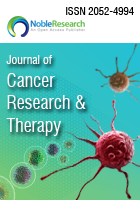
Original research: primary research from any area of Cancer, or Cancer research related area.
Case reports: reports of clinical cases that can be educational, describe a diagnostic or therapeutic dilemma, suggest an association, or present an important adverse reaction.
Editorial: to introduce and comment on major advances and developments in the field.
Hypotheses: Publish papers in cancer research which describe theories, ideas which have a great deal of observational support and some hypotheses where experimental support is yet fragmentary.
Methodology: present a new experimental method, test or procedure. The method described may either be completely new, or may offer a better version of an existing method. The article must describe a demonstrable advance on what is currently available. The method needs to have been well tested ideally, but not necessarily, used in a way that proves its value.
News and commentary: short, focused and opinionated articles on any subject with in the journal’s scope. These articles are usually related to a contemporary issue, such as recent research findings, and are often written by opinion of leaders invited by the editorial board. Editorial board members and section editors may write such articles to highlight hot or emerging areas of research within a given field.
Rapid communications: devoted to the publication of short papers presenting highly original and significant material.
Review: to review systematically progress and unresolved problems in the field and make suggestions for future work. Comprehensive, authoritative, descriptions of any subject within the scope of Cancer research & Therapy journal.
Short reports: brief reports of data from original research.
Letters to the Editor: to discuss and make reply to the contributions published in JCRT, or to introduce and comment on a controversial issue of general interest.
All articles of JCRT are posted online immediately as they are ready for publication. All articles will be assigned a DOI number (Digital Object Identifier) where they become searchable and citeable without delay.
- JCRT offers scientists the opportunity to publish their research rapidly in an open access medium that is freely available online to researchers worldwide.
- Electronic submission of manuscripts.
- Immediate publication tentatively within a month/two months of Initial submission.
- Efficient and objective peer review with a streamlined electronic production workflow.
- No barriers, which helps your research reach the entire scientific community worldwide.
- Our professional staff adds further value to your paper through the copy-editing process, which minimize stylistic errors and improves readability.
- Our professional staff continuously working to improve the search engine rankings for NobleResearch group journals.
- Our linking program extends too many abstracting and indexing databases, library sites, and includes participation in CrossRefTM.
The Journal of Cancer Research & Therapy uses double-blind review, which means that both the reviewer and author identities are concealed from the reviewers, and vice versa, throughout the review process. Peer-review is commonly accepted as an essential part of scientific publication. We appreciate the time that referees devote to assessing the manuscripts we send them, which helps to ensure that NobleResearch journals publish only material of the highest quality. Peer reviewers are asked to give their opinion on a number of issues pertinent to the scientific and formal aspects of a paper, and to judge the papers on grounds of originality and urgency. All relevant information will be forwarded to the author(s). There are several types of decision possible for each article.
- Accept manuscript without revision
- Accept after minor or major revision
- Submit elsewhere, if the manuscript is better suited for another journal in our group
- Reject manuscript, if the manuscript is substandard
In addition, papers may be rejected directly by the Chief Editor if judged to be out of scope or if scientifically or formally sub-standard. When asking for revisions, reviewers have two possible goals: to ask authors to tighten their arguments based on existing data, or to identify areas where more data are needed. Even formal revision may be required if the language or formalities is sub-standard. To facilitate rapid publication, authors are given a maximum of two months for revision. After two months, revised manuscripts will be considered as new submissions.
The review process is strictly confidential and should be treated as such by reviewers. Because the author may have chosen to exclude some people from this process, no one not directly involved with the manuscript, including colleagues or other experts in the field, should be consulted by the reviewer unless such consultations have first been discussed with the professional editor.
NobleResearch believes that an efficient editorial process that results in timely publication provides a valuable service both to authors and to the scientific community at large. We therefore request that reviewers respond promptly, usually within fourteen (14) days of receipt of a manuscript. If reviewers need more time, we request that they contact us promptly so that we can keep the authors informed and, if necessary, assign alternative reviewers.
Authors may and should take advantage of the web-based nature of the publication by submitting supplemental files that include animations, software demonstrations and innovative graphics. Supplemental files will be evaluated with the manuscript as part of the peer-review process. They should not exceed 20 megabytes in size. We accept the following file formats for supplemental files: TIF (tif), JPEG (jpg), GIF (gif), Animated GIF (gif), PostScript (ps), Encapsulated PostScript (eps), Adobe Photoshop (psd), AdobePDF (pdf), Audio (au), Audio (mp3), Audio (wav), MPEG (mpg), Quicktime (avi), Quicktime (mov).
Copyright on any open access article in a journal published by NobleResearch Publishers is retained by the author(s).
The Creative Commons Attribution License 4.0 formalizes these and other terms and conditions of publishing articles. In accordance with our Open Data policy, the Creative Commons CC0 1.0 Public Domain Dedication waiver applies to all published data in NobleResearch Publishers open access articles. Please contact us if there are any questions regarding Copyright policy.
Journal of Cancer Research & Therapy offers a wide range of advertising opportunities to promote your product or service. NobleResearch group reserves the right to reject any advertisement not considered suitable for publication.
For more information please contact:
Marketing Director
Email: marketing@nobleresearch.org



